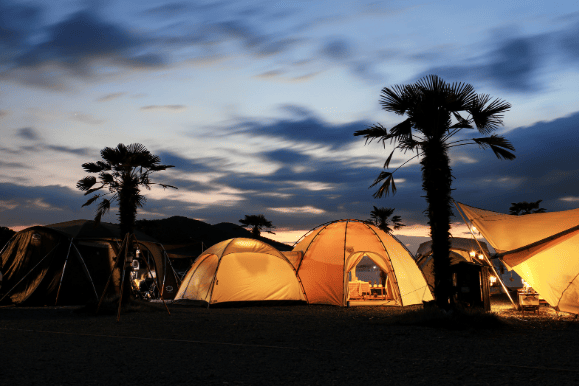
Imagine the fresh air, the sound of birds, and the beauty of nature around you. Camping is one of the best ways to enjoy the outdoors. But, have you ever thought about how your camping trip affects the environment? Eco-friendly camping is all about enjoying nature without harming it. In this article, we’ll explore how you can be a responsible camper and leave no trace behind, ensuring that our beautiful natural spaces stay healthy and vibrant for everyone to enjoy.
Understanding the Impact of Camping
When we camp, we enter the home of many plants and animals. Everything we do, from setting up a tent to cooking food, can affect the environment. Leaving trash behind, disturbing wildlife, or even using certain soaps can harm nature. That’s why it’s important to understand the impact of our actions and learn how to minimize them.
Leave No Trace Principles
The Leave No Trace Center for Outdoor Ethics has created seven principles to help campers respect the environment:
- Plan Ahead and Prepare: Before you go camping, research the area. Know the rules, weather conditions, and what kind of wildlife lives there. This preparation helps you make less impact on the environment.
- Travel and Camp on Durable Surfaces: Stick to trails and camp at designated sites. Walking or setting up a tent on fragile land can damage plants and soil.
- Dispose of Waste Properly: Always take your trash with you. Learn how to dispose of waste water and human waste correctly to avoid pollution.
- Leave What You Find: Enjoy nature without taking souvenirs. Don’t pick plants or move rocks. This keeps the habitat just as you found it.
- Minimize Campfire Impacts: Use a camping stove instead of a fire if possible. If you do have a fire, use existing fire rings and keep it small.
- Respect Wildlife: Observe animals from a distance. Don’t feed them or disturb their homes.
- Be Considerate of Other Visitors: Keep noise down and give others space to enjoy nature too.

Eco-Friendly Camping Gear
Selecting eco-conscious camping gear significantly boosts your green efforts. Opt for tents, sleeping bags, and accessories crafted from sustainable materials. Illuminate your campsite with solar-powered or rechargeable lighting, avoiding disposable batteries. Additionally, carrying a reusable water bottle is a small but impactful step towards reducing plastic waste. These choices not only lessen your environmental impact but also set a positive example for sustainable outdoor adventures.
Sustainable Food Choices
Your food choices are crucial in eco-friendly camping. Opt for minimally packaged items or homemade snacks to reduce waste. Steer clear of single-use plastics, such as disposable bottles and utensils, favoring sustainable alternatives. Post-meal, diligently clean your cooking space to prevent attracting wildlife. These mindful practices help maintain the natural balance and cleanliness of the camping environment, ensuring a minimal ecological footprint.
Educating the Next Generation
Eco-friendly camping extends beyond personal practice to educating children about nature’s respect. Involve them in learning and applying the Leave No Trace principles. Encourage their participation in planning green meals and packing for trips. This not only fosters family bonding but also instills in them a lifelong appreciation and care for the environment, shaping responsible, nature-conscious future generations.

Getting Involved in Conservation Efforts
Deepen your commitment to nature by engaging in conservation initiatives. Participate with local organizations to tidy campsites and trails, enhancing the natural beauty of these spaces. Additionally, educate yourself about the wildlife in your camping areas. Understanding and protecting these creatures plays a critical role in preserving the ecosystems you enjoy. Such involvement not only enriches your camping experience but also contributes significantly to environmental stewardship.
Engaging in Eco-Friendly Activities
While camping, engage in activities that have a low impact on the environment. Instead of motorized sports, try hiking, bird watching, or canoeing. These activities let you enjoy nature without contributing to pollution or disturbing wildlife. Also, consider joining or organizing nature walks or eco-friendly workshops at the campsite. These activities can be fun, educational, and a way to deepen your connection with the environment.
Conclusion
Camping is a fantastic way to connect with nature, but it comes with a responsibility. By following eco-friendly practices, we ensure that the great outdoors remains beautiful and untouched for future generations. Remember, every small action counts. Let’s pledge to be mindful campers, leaving no trace behind, and fully respecting the natural world. Happy camping!






